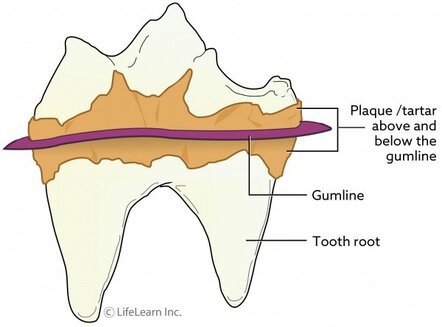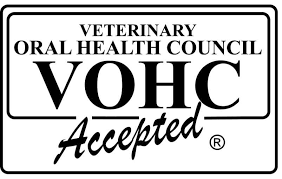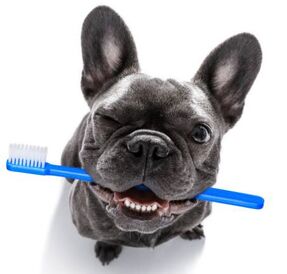
What is Dental Disease?
Dental disease, also known as periodontal disease, is a condition in which the tissues supporting the teeth become inflamed.
In its most mild form, dental disease is associated with inflammation of the gums known as gingivitis.
In more severe cases, dental disease can cause pain for the pet, bone loss around the tooth causing mobility, lesions, and even abscesses.
Dental disease is one of the most common medical conditions seen by veterinarians. Over 80% of dogs over the age of three have active dental disease.
Dental disease, also known as periodontal disease, is a condition in which the tissues supporting the teeth become inflamed.
In its most mild form, dental disease is associated with inflammation of the gums known as gingivitis.
In more severe cases, dental disease can cause pain for the pet, bone loss around the tooth causing mobility, lesions, and even abscesses.
Dental disease is one of the most common medical conditions seen by veterinarians. Over 80% of dogs over the age of three have active dental disease.

How can it affect your pet?
Dental disease can affect your pet in many ways, some more noticeable than others. One of the number one concern from the owners of pets with dental disease is bad breath, which is caused by the buildup of bacteria and tartar.
When a pet develops dental disease significant amounts of bacteria reside in the mouth. These bacteria can enter the bloodstream and travel through the body.
There are three organs that are especially susceptible to the spread of oral bacteria: the heart, the liver, and the kidneys. In fact, the presence of dental disease has been linked to an increased risk of heart disease in dogs.
The liver and kidneys are especially susceptible to the effects of dental disease. Both organs function primarily to filter the blood, which allows bacteria from the oral cavity to easily spread to each of these organs. Infection and inflammation within the liver and kidneys can cause signs of systemic infection (such as fever,
weight loss, and decreased appetite).
How can it affect your pet?
Dental disease can affect your pet in many ways, some more noticeable than others. One of the number one concern from the owners of pets with dental disease is bad breath, which is caused by the buildup of bacteria and tartar.
When a pet develops dental disease significant amounts of bacteria reside in the mouth. These bacteria can enter the bloodstream and travel through the body.
There are three organs that are especially susceptible to the spread of oral bacteria: the heart, the liver, and the kidneys. In fact, the presence of dental disease has been linked to an increased risk of heart disease in dogs.
The liver and kidneys are especially susceptible to the effects of dental disease. Both organs function primarily to filter the blood, which allows bacteria from the oral cavity to easily spread to each of these organs. Infection and inflammation within the liver and kidneys can cause signs of systemic infection (such as fever,
weight loss, and decreased appetite).

What is involved in a routine dental cleaning?
A routine dental cleaning involves a thorough dental examination, followed by a dental scaling and polishing to remove the plaque and tartar from all tooth surfaces. Your veterinarian will evaluate each individual tooth to look for any signs that it may be unhealthy. This includes checking for pocketing near the teeth, mobility of the teeth, or bone loss around the teeth.
If your veterinarian deems a tooth to be unhealthy than it is beneficial for the pet that these be extracted. Dogs and cats do very well even if we have to extract lots of teeth!

The best oral care starts at home!
- Brushing at home is a great way to stay on top of your pet’s oral care, but we understand not every pet likes it. If you are able to brush at home it is important to use a toothbrush and toothpaste specifically made for pets.
- Dental chews are a great way to make oral care fun for your pet! Dental chews can taste great and provide a fun way to help your pets teeth. It is important to use dental chews that are meant to be digested and that will not break teeth. CET brand dental products are recommended by our veterinarians.
- A great way to have confidence in the dental chew you are using is to look for the Veterinary Oral Health Council seal of approval.
- Toys that stimulate chewing safely can also be used as a tool for oral health!
- Dry kibble can help minimize the tartar that builds up on your pet’s teeth. Chewing and breaking down the kibble provides much needed debridement of the teeth. There are also many dry food options specifically formulated to help your pets’ teeth. One of the brands we recommend is Hills T/D. They use an exclusive fiber matrix designed to work like a toothbrush as your pet chews. Even If T/D is not fed as the main diet, it can also be beneficial when used as a treat.






